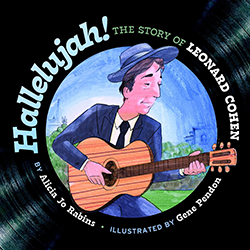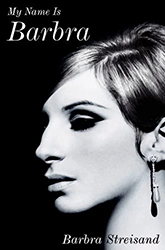Leonard Cohen’s final book is a testament to the songwriter’s enduring and particular creative drive, which reveals itself here, as the book’s subtitle suggests, in poems, song lyrics, excerpts from his notebooks, and pen-and-ink self-portraits.
In his acceptance speech for the Prince of Asturias Award, included at the end of the book, Cohen writes of his “deep association and confraternity with the poet Federico García Lorca,” from whom he learned the importance of voice — specifically, “never to lament casually.” It surprised me to read this, partly because Cohen’s lyric voice is much looser and more observational than Lorca’s. But what surprised me most is the dictate against casual lamentation, because that’s precisely what Cohen does best on the page. Take, for example, the short poem, “My Career”:
So little to say
So urgent
to say it
Cohen is weirder and more cannily observant when his poems are shorter and less like songs, as in the short poem, “What I Do”:
It’s not that I like
to live in a hotel
in a place like India
and write about G‑d
and run after women
It seems to be
what I do
Or the poem, “Kanye West Is Not Picasso,” in which Cohen declares, “I am the Kanye West Kanye West thinks he is.”
More often, however, Cohen deploys language, repetition, rhyme, and line like the songwriter he is. This makes it a challenge to encounter his lyrics and lyric-like poems on the page, where they lose some of their power. Unlike W.H. Auden or Kenneth Koch, two poets Cohen mentions and evokes in The Flame, Cohen doesn’t use rhyme to make or complicate meaning. In“No One After You,” for example, rhyme and repetition move the song forward but don’t contribute meaning. Here is the chorus, which is repeated twice:
Been on the road forever
I’m always passing through
But you’re my first love and my last
There is no one, no one after you
The notebook section of The Flame is probably the most successful, because here Cohen is less committed to the simple rhymes he uses in his poems and lyrics. Some of my favorite moments in the book take place outside of a rhyme scheme, allowing Cohen to make meaning through line breaks and tone. For example:
I don’t think we’re going
to get together ever again
Or
I sincerely hope
you have not
come to believe,
that simply because
you ran off & got
married behind
my back, you
are some how
entitled to keep
my tape measure
For all but Cohen’s mega-fans, The Flame is probably best leafed through rather than read cover to cover. But it’s well worth leafing through.
Lucy Biederman is an assistant professor of creative writing at Heidelberg University in Tiffin, Ohio. Her first book, The Walmart Book of the Dead, won the 2017 Vine Leaves Press Vignette Award.




